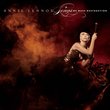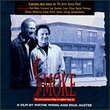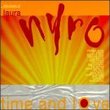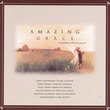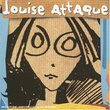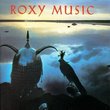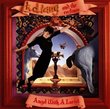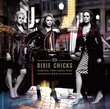| All Artists: Judy Collins Title: Wildflowers Members Wishing: 2 Total Copies: 0 Label: Elektra / Wea Release Date: 10/25/1990 Genres: Folk, Pop, Rock Styles: Traditional Folk, Contemporary Folk, Singer-Songwriters, Oldies, Vocal Pop, Folk Rock Number of Discs: 1 SwapaCD Credits: 1 UPCs: 075596065528, 075596065542, 603497994908 |
Search - Judy Collins :: Wildflowers
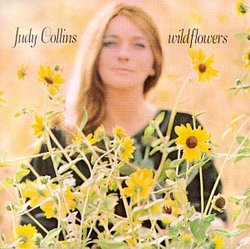 | Judy Collins Wildflowers Genres: Folk, Pop, Rock
No Description Available No Track Information Available Media Type: CD Artist: COLLINS,JUDY Title: WILDFLOWERS Street Release Date: 11/17/1987 |
Larger Image |
CD DetailsSynopsis
Product Description No Description Available No Track Information Available Media Type: CD Artist: COLLINS,JUDY Title: WILDFLOWERS Street Release Date: 11/17/1987 Similarly Requested CDs
|
CD ReviewsAN Amazing Album By The Rising Judy Collins! Barron Laycock | Temple, New Hampshire United States | 08/25/2000 (5 out of 5 stars) "I remember seeing Judy in concert in the quite informal setting of Avaloch, a wonderful sylvan natural amphitheater that all the folk stars from Collins to Joan Baez to Kris Kristoferson to Tom Rush to James Taylor performed at in Lenox Massachusetts in the summers of 1970. Sadly, it is now the site of a ritzy set of summer condominiums for the New York summertime Berkshires crowd. Yet I can still recall hearing Judy with that magical soaring voice of hers warming up on stage with "Amazing Grace" as we filed onto the grass, and the song so echoed and reverberated over the warm humid airwaves that he older folks at Tanglewood, some six or seven miles way, complained about the noisome interruption. It became an inside joke that Collins, Baez and others would playfully aggravate when performing for the very mellow crowd of counterculture fans. I recall a certain sweet aroma wafting through the air, too, and it wasn't the smell of cotton candy. Of course, it probably goes without saying that I love most of the songs on this album, from the opening cover of "Michael From Mountains" to her own beautifully and lyric "Since You've Asked" to two back to back Leonard Cohen classics, "Sisters Of Mercy and "Priests". Cohen's haunting and evocative lyrics are masterfully interpreted by Collins, an early champion of his amazingly poetic folk songs. Of course, the song propelling the sales of the album was her number one hit song, "Both Sides Now", a song that literally dominated the charts for months. I love her amazing vocal work in "Albatross", and one can almost feel the rush of emotion in the song as she advances through it. Finally, I still think her interpretation of Cohen's "Hey, That's No Way To Say Good-bye" is one of the best songs she ever recorded. This is an early snapshot of a one of the titans of modern American folk music, taken just as she reached the peak of her awesome vocal and collaborative talents. It is one sure to please the most discriminating of well-trained folk ears, and one I am sure you will come to treasure as much as I do. Enjoy." Essential Judy Collins klavierspiel | TX, USA | 08/27/2001 (5 out of 5 stars) "Judy Collins is by now one of America's most enduring popular singers. "Wildflowers," along with "In My Life," "Whales and Nightingales" and one or two other albums, represents her particular sensibility in its best light. She started as a strong-voiced folk performer of a distinctly challenging bent. By "Wildflowers" her voice had become higher and lighter in timbre, and her repertory had broadened to include songwriters as diverse as Brel, Mitchell, Cohen and herself. One appreciates after thirty-plus years the quality of the material she chose, and the intricacy and intelligence of the lyrics, even if at times they seem somewhat precious. The beautiful orchestrations by Joshua Rifkin also still give much pleasure. In general the songs on this album do not cover as wide an emotional range as on some of her other discs, tending uniformly toward the gentle and contemplative. On the other hand, they play better to her particular vocal and interpretive strengths. For me, this remains my favorite Collins album." For me, the best of her albums Lawrance M. Bernabo | 08/31/1999 (4 out of 5 stars) "Some of the lyrics are a little laughable now (very hippie thoughtful, self-dramatic) but the whole light, airy quality of the album makes it the best of her work. I like this album very much, but I can't say I'm a huge fan of hers (in other albums, its evident she takes herself too seriously). The ballads are lovely. Her voice has come apart since the mid 1980s, so if you're going to get something, aim for her earlier work. She does not have the range she used to have."
|

 Track Listings (10) - Disc #1
Track Listings (10) - Disc #1